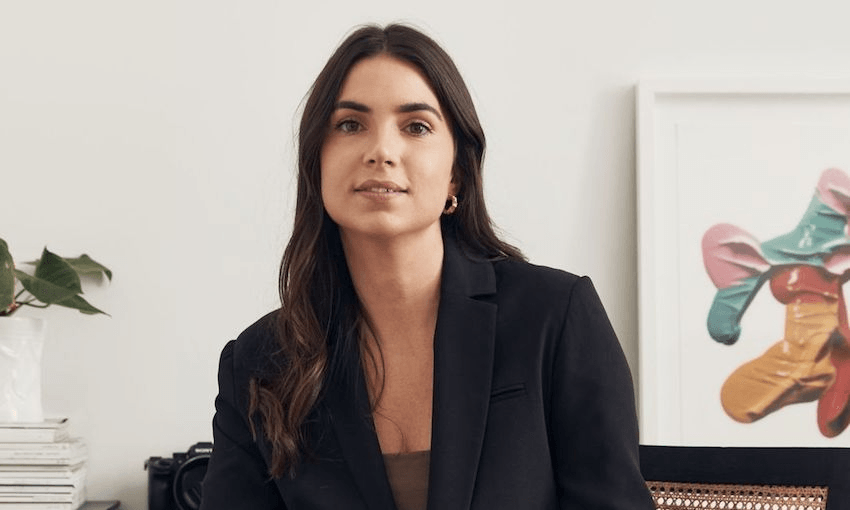The world of investing can be daunting – and for women, its history as a male-dominated sector means its door can seem firmly shut. Victoria Harris is working to change this.
The finance industry doesn’t always seem accessible, especially to women. It’s perceived as a scary, male-dominated, high-risk environment – a perception that puts a lot of people on the back foot before they’ve even started. As investment platforms like Hatch and Sharesies continue to grow, the potential for everyday people to make huge moves for their financial future is great, but it often takes a little bit of confidence to get started on that journey.
With 10 years of industry experience, Victoria Harris has seen firsthand the divide between men and women when it comes to knowledge and confidence in investing. While she thinks the “boys’ club” perception isn’t entirely accurate any more, there are still significant barriers to women starting their investment journeys.
“The lack of places to go to get the full picture when it comes to investing just really caught my attention… The more digging I did, the more I realised that this is a huge issue – that women are being almost left behind when it comes to the investing journey and discussion.”
So Harris set up The Curve, an education platform providing information for women on finance and investing.
Holding events for women to learn how to make the most of every investment opportunity – from Kiwisaver to the stock market and everything in between – Harris is helping to bridge the gender divide she witnessed through her decade in the industry.
“I think the biggest obstacle is that it seems like such a mountain to climb, and it seems like such an intimidating black box subject. That is such a concern because doing nothing actually costs you… It’s what you don’t do that will cost you in the long run, if you don’t invest.”
Suzanne Gregg has worked in business for years, but as a buyer she doesn’t have much to do with the finance side of things. Living overseas at the beginning of 2020, she began to invest small amounts, but admits she didn’t know much about it until moving back home and attending two of Harris’s talks.
“I started investing little bits and pieces but didn’t really have any idea what I was doing, and then went to Vic’s first talk on investing and she broke it down and made it really palatable and easy to understand.”
Gregg says the world of finance and investment can seem like a confusing place, but being in a group of women at one of The Curve’s talks helped her gain confidence to ask questions and get really stuck into the learning process.
“I’ve always been really intimidated by finance, I felt like if you didn’t study it at uni or at school then you don’t understand… [Harris] made me realise things that maybe I should have known but didn’t, and was too afraid to ask somewhere else.”
Harris has met a lot of different challenges in her line of work, but she says being a woman in a typically male-dominated industry also has its positives.
“There’ll be challenging times when I’m the only female in a room of, say, 40 men. I used to get quite intimidated by that when I was younger, but now I use it to my advantage. When you’re meeting management teams, for example, they tend to remember you because you’re the only female.”
And despite movies like The Wolf of Wall Street painting the industry as a drug-fuelled boys’ club, she assures it’s not at all like that. It’s also not the dark-room scrolling-numbers desk job that many people think of when they hear the word “finance”. The best part of Harris’s job, she says, is getting to talk to interesting people.
“A lot of people have this misconception that it is sitting behind a desk on a spreadsheet, crunching numbers, but it’s also very much about talking to companies, talking to competitors of those companies, talking to other kinds of industry stakeholders. That’s the part I love the most.”
The most daunting part of investing, for a lot of people, is the possibility of losing money. It can often be a gamble, but there are ways to make the whole experience much less risky, says Harris. Even career investors can’t be 100% sure of every move they make.
“Even the best investors make mistakes, and that’s why we would tell people to have a diverse portfolio. The more you spread out your risk, the less likely you’re going to lose all your savings.”
Harris wants financial literacy to be taught in schools, which she thinks would help young people get a head start on being smart with their money. She wants to one day expand The Curve to run talks with school groups.
Ultimately, she wants young women to feel more empowered to take up careers in finance – but she’s aware it can appear daunting.
“Just take one step at a time to get your head around it. In any industry, trying to understand anything, you do have to put in the time – but I think when it comes to investing, you can see real results. That’s when it becomes really worthwhile.”
The proof that what she’s doing with The Curve is working comes from women like Gregg, who come to her talks and gain the confidence and knowledge they need to pursue their investment goals.
“Those little things are why I do this,” Harris explains. “Because it’s such a small change that can make such a big change in the future for someone.”
